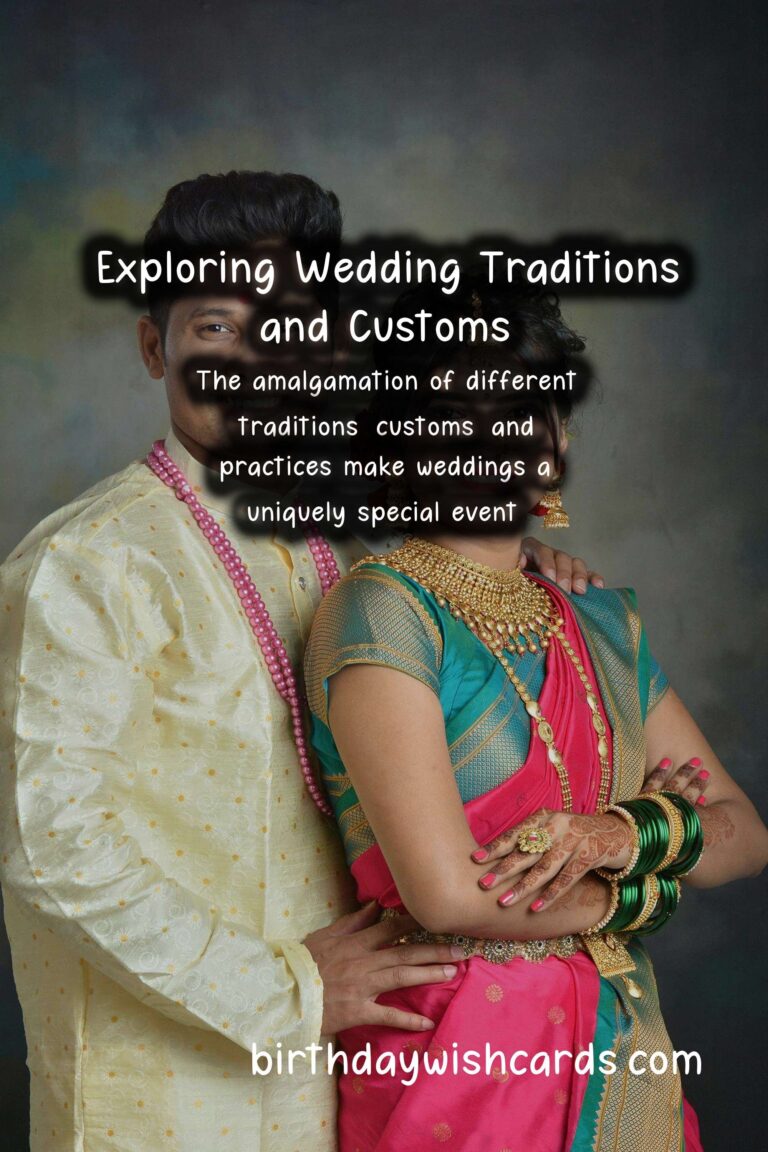
Weddings are much more than a legal union of two individuals; they represent a significant cultural and personal milestone in each person’s life. The amalgamation of different traditions, customs, and practices make weddings a uniquely special event. In this article, we delve into the various factors that contribute to the significance of weddings around the world, highlighting different traditions and customs that add depth to this beautiful occasion.
The Cultural Significance of Weddings
Weddings often embody the essence of a culture. Depending on geographic and ethnic backgrounds, the practices surrounding weddings can differ significantly, yet they all aim to honor the unity of love and commitment.
In many cultures, weddings are a community affair. Not only do they symbolize the union of two people, but they also signify the joining of families and, in some cases, entire communities. This aspect highlights the communal support that newlyweds often receive as they embark on their journey together.
Common Wedding Traditions Around the World
Different cultures have unique customs and rituals that play a crucial role in the wedding ceremony. Here are some fascinating traditions from various regions:
1. The Western Wedding
In many Western countries, the ceremony often takes place in a church or designated venue, embracing themes of love and commitment. Traditional elements include the exchange of vows, the ring ceremony, and a celebration afterward, typically featuring a reception filled with food, dancing, and toasting to the couple’s future.
2. Hindu Weddings
Hindu weddings are ornate affairs that can last for several days. The rituals typically include the ‘Sangeet,’ a pre-wedding musical event, the ‘Mehndi,’ where intricate designs are tattooed onto the bride’s hands and feet, and the ‘Saat Phere,’ a ritual where the couple takes seven steps together, signifying their promises to one another.
3. Chinese Weddings
Chinese weddings are rich in symbolism, often incorporating elements like the color red for good luck. The bride typically wears a red dress, and the couple might partake in tea ceremonies to honor their families.
4. Irish Weddings
Irish wedding traditions often include the ‘Handfasting’ ceremony, where the couple’s hands are tied together to symbolize their union. This practice reflects the ancient belief in magic and commitment.
Modern Trends in Weddings
While traditional ceremonies have a timeless quality, modern weddings are evolving to reflect personal tastes. Many couples are now opting for themed or destination weddings, integrating elements from both cultures to create a unique experience.
Moreover, the rise of social media has influenced how weddings are planned and celebrated. Couples often share aspects of their wedding on platforms like Instagram and Pinterest, showcasing their individuality through customized decorations, photography styles, and floral arrangements.
Rituals and Their Meanings
Every wedding ritual holds a specific meaning, often rooted in love, commitment, and unity. Understanding these rituals can enhance appreciation for the significance of each ceremony.
Exchanging of Rings
The exchange of wedding rings symbolizes the unbreakable bond between partners. The circular shape represents eternity, signifying a commitment that lasts a lifetime.
The First Dance
The first dance, often performed by the couple at their reception, symbolizes the beginning of their shared journey and highlights their unity.
The Role of Families in Weddings
Families play a significant role in wedding traditions. In many cultures, parents have a notable influence on the planning and execution of the wedding ceremony, reflecting respect towards family lineage.
Parental Blessing
Often, parents offer their blessings during the ceremony, acknowledging their support for the couple’s union.
Family Traditions
Many families have specific wedding traditions passed down through generations, showcasing the importance of history and familial bonds within the celebration.
Why Every Wedding is Unique
No two weddings are the same, even if they follow similar formats. Each couple injects their personality and storyline into their wedding day, making it a reflection of their unique love story.
From personal vows to individualized decorations, couples are finding ways to showcase their journey together, creating an event that resonates with their distinct characters.
The Emotional Impact of Weddings
A wedding is a deeply emotional event, not just for the couple but also for family members and guests. The day often evokes happiness, nostalgia, and a sense of community.
Ceremonies can trigger profound feelings, allowing attendees to reflect on their own relationships and commitments. The blend of joy and emotion experienced during weddings creates lasting memories that are cherished for a lifetime.
Conclusion
Weddings are significant events that transcend mere formalities. They are a celebration of love, uniqueness, and cultural heritage, marked by traditions and customs that give depth to the occasion. As we continue to celebrate love through diverse practices, the essence of weddings remains centered on unity and shared experiences.
Weddings are much more than a legal union of two individuals; they represent a significant cultural and personal milestone in each person’s life. The amalgamation of different traditions, customs, and practices make weddings a uniquely special event. 













